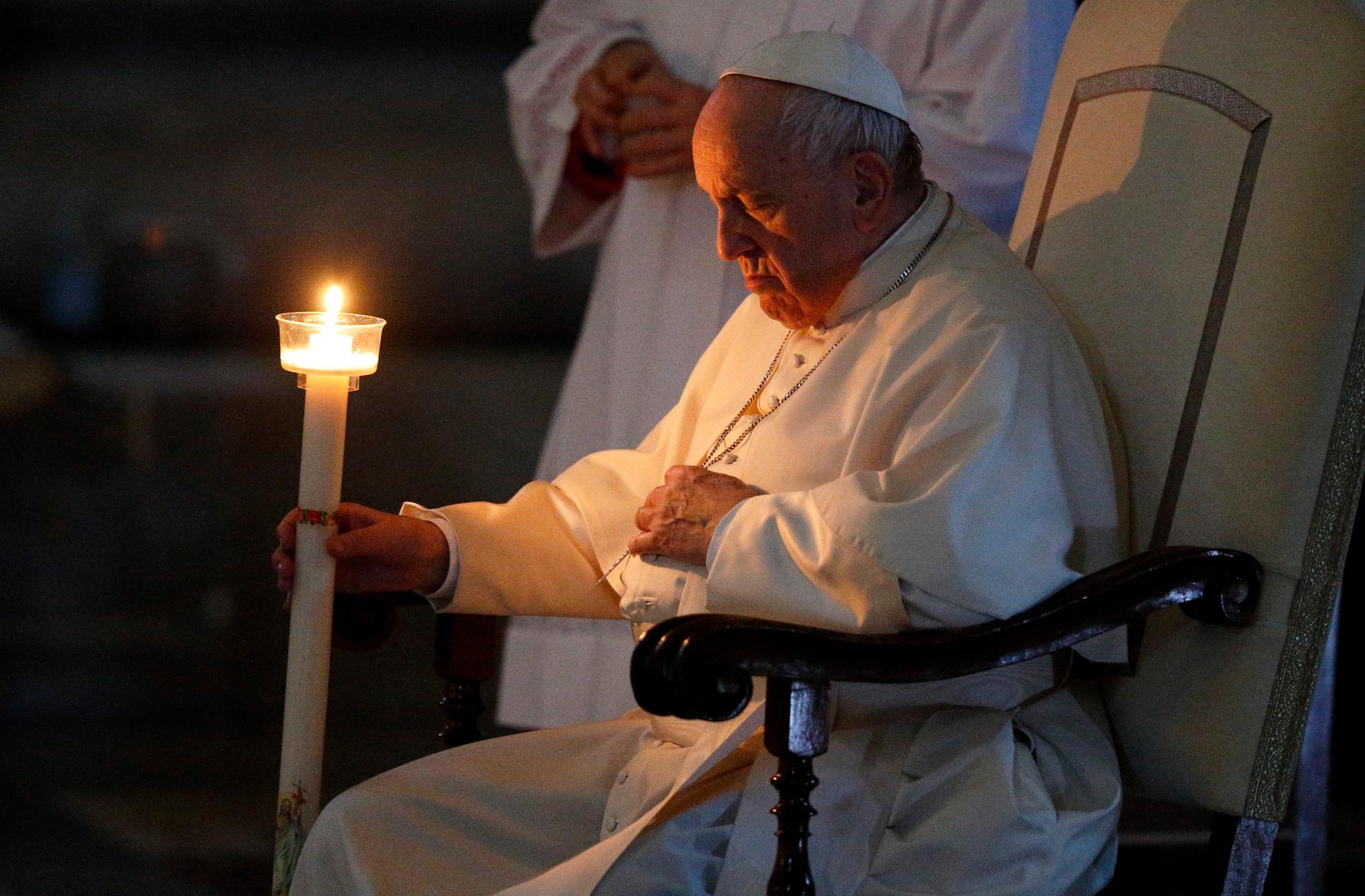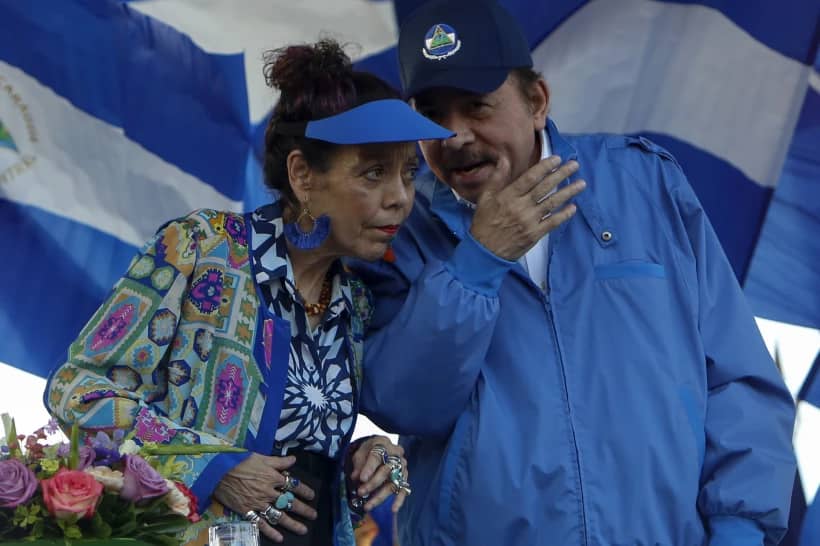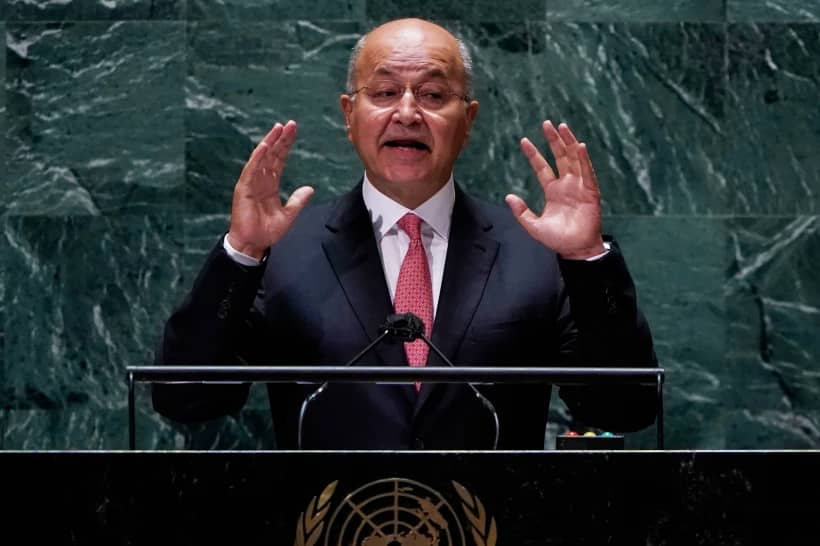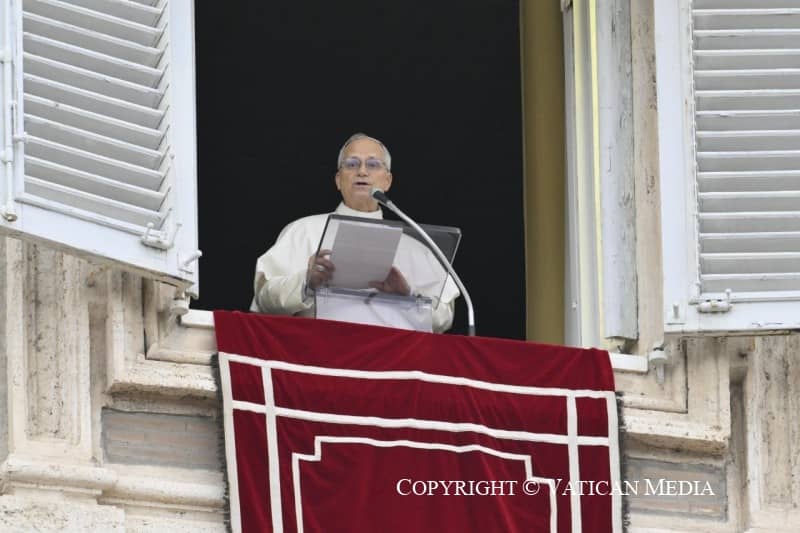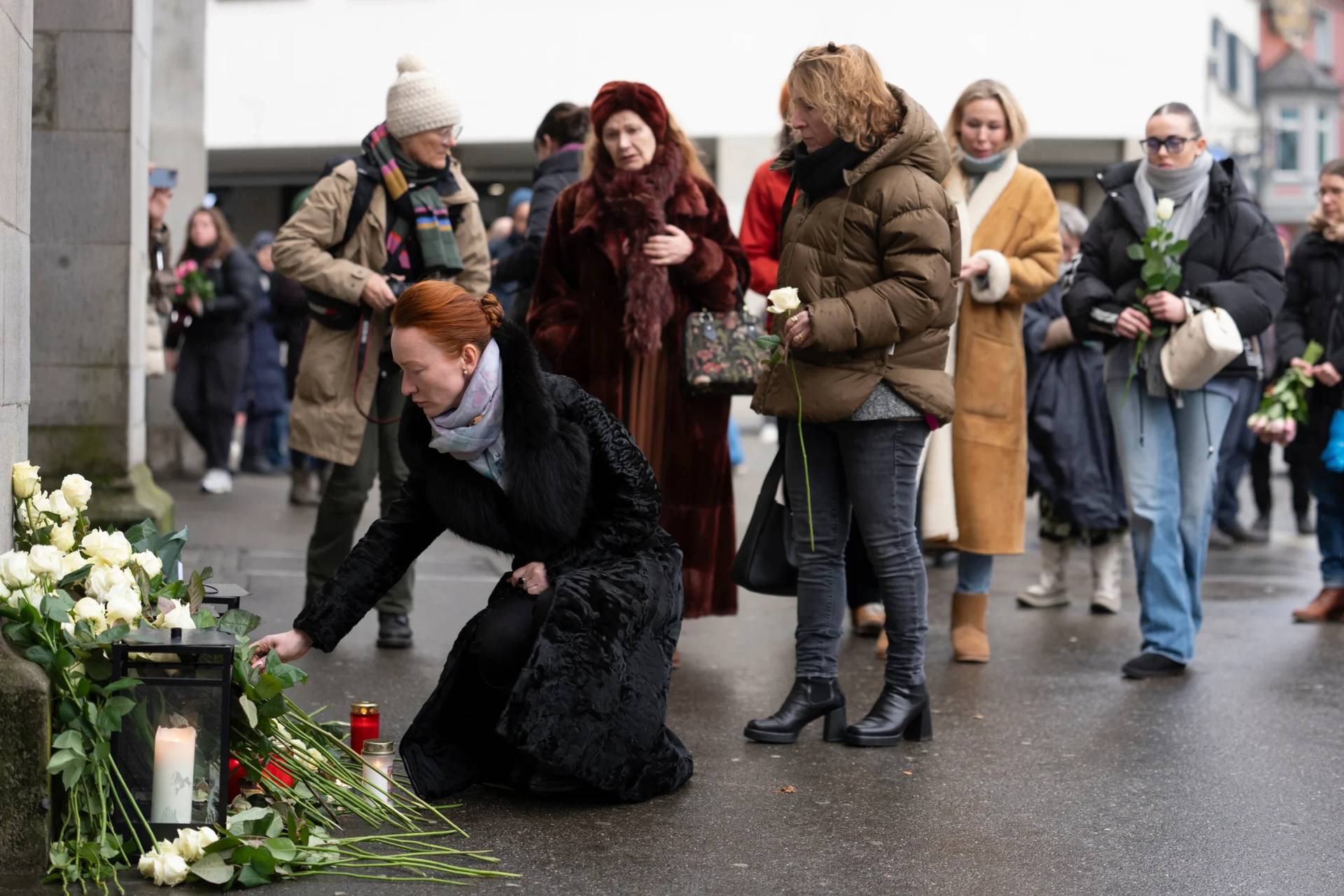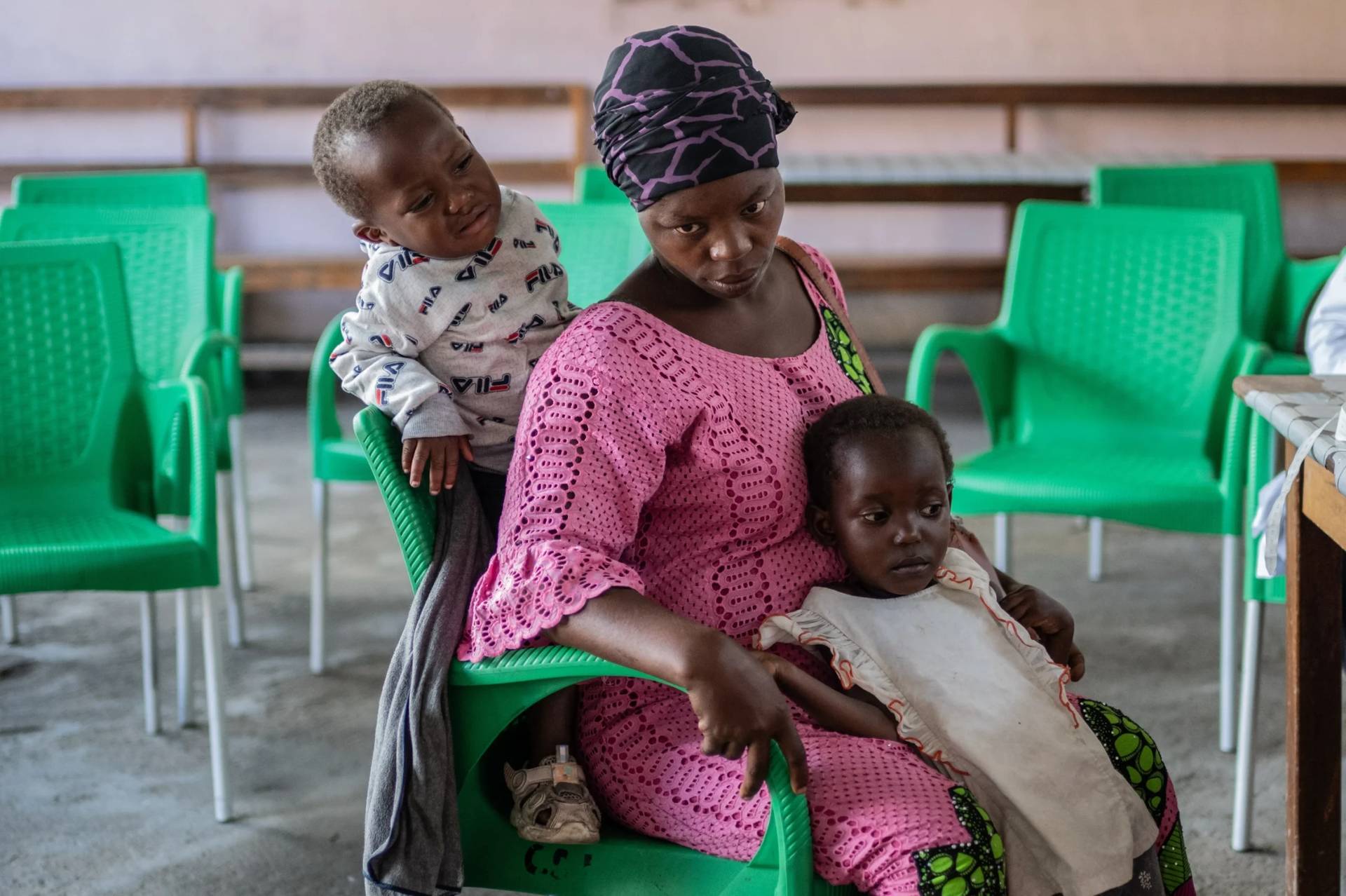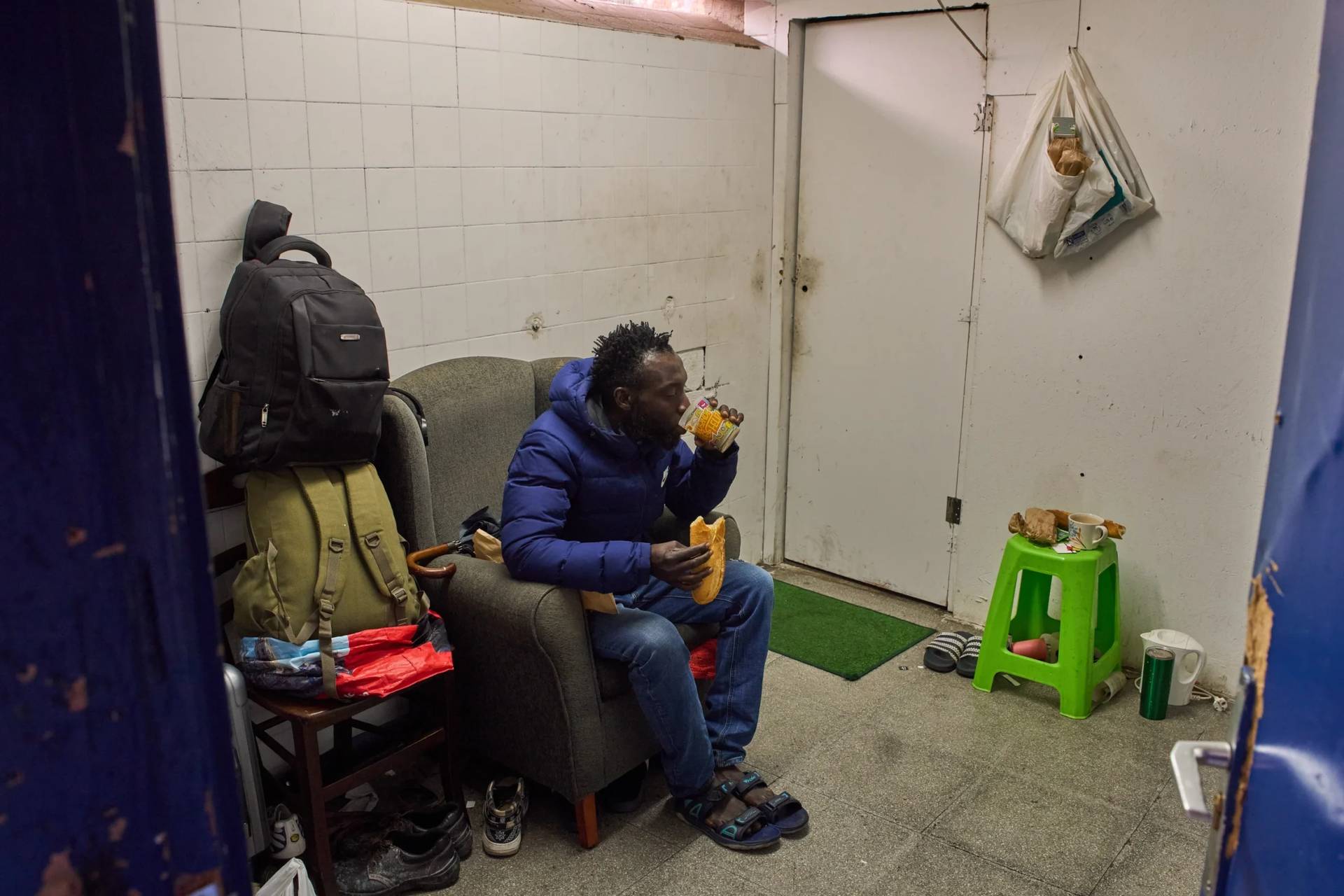ROME – During a ceremony that began in a dark St. Peter’s Basilica, slowly lightened as the flame of the Paschal candle was spread among the more than 5,000 people present, Pope Francis contrasted “starlit nights” with nights of war “riven by streams of light that portend death,” and then pronounced that “Christ is risen” to a Ukrainian mayor.
Francis was addressing the Mayor of Melitopol in southeastern Ukraine, Ivan Fedorov, who was briefly kidnapped by Russian forces, calling for peace and prayers for parliamentarians and mayors.
“We can only give you our accompaniment, our prayers, [and] ask for you the gift of courage,” the pope said, addressing Fedorov. “And [we can] tell you Khristos voskres (‘Christ is risen’)” in Ukrainian.
Visibly tired following a couple of strenuous days, Pope Francis on Saturday took part in the Easter Vigil in St. Peter’s Basilica, but for reasons undisclosed by the Vatican but presumably related to the knee pain that’s recently afflicted the pontiff, he did not preside over the celebration.
As is traditional in this celebration, which commemorates Christ’s resurrection following his death on the cross, the ceremony began with a pitch black basilica and the lighting of the Paschal candle. As it proceeded through St. Peter’s, the thousands present gradually lit their own candles from the one carried by Italian Cardinal Giovanni Battista Re, who celebrated the liturgy in place of the pope.
As this symbolic “Light of Christ” spread, the darkness decreased.
In his homily, Francis invited people to let Jesus “rise again from all those tombs in which we have sealed him,” and “awaken [us] from our peaceful slumber and let him disturb and inconvenience us.”
“Let us bring him into our everyday lives: through gestures of peace in these days marked by the horrors of war, through acts of reconciliation amid broken relationships, acts of compassion towards those in need, acts of justice amid situations of inequality and of truth in the midst of lies,” he said. “And above all, through works of love and fraternity.”
The pontiff reflected on the day’s Gospel reading, which focuses on the women who, going to visit Christ in his tomb, found it to be empty and were told by two angels, “why do you look for the living among the dead? He is not here, but has risen.”
Francis said that “we do well to listen to those words and to repeat them: He is not here!”
Whenever people are tempted to think they have understood everything about God and that they can pigeonhole him in “our own ideas and categories,” it is important to repeat “he is not here!” Similarly, when God is only sought after in times of trouble and need, but forgotten in daily life and decisions, God is not there, as he isn’t when “we think we can imprison him in our words and our customary ways of thinking and acting, and neglect to seek him in the darkest corners of life, where people weep, struggle, suffer and hope.”
“May we too hear the question asked of the women: ‘Why do you look for the living among the dead?’” Francis insisted. “We cannot celebrate Easter if we continue to be dead; if we remain prisoners of the past; if in our lives we lack the courage to let ourselves be forgiven by God.”
The pontiff pointed out that “all too often” people are tempted to look at life and reality with downcast eyes, the gaze fixed on the present, disenchanted by the future and concerned solely on oneself, complaining that things will never change. But on Easter, God “wants to give us different eyes, alive with hope that fear, pain and death will not have the last word over us. Thanks to Jesus’ paschal mystery, we can make the leap from nothingness to life.”
According to Francis, it is impossible to celebrate the mystery of Easter “if we continue to be dead, if we remain prisoners of the past,” lacking the courage to be forgiven by God and reducing faith to a talisman.
“A Christianity that seeks the Lord among the ruins of the past and encloses him in the tomb of habit is a Christianity without Easter,” he said.
After delivering his homily, Pope Francis administered the Sacraments of Initiation — Baptism, Confirmation and the Eucharist — to seven people from the United States, Cuba, Italy and Albany.
Closing Holy Week, Pope Francis is scheduled to celebrate Mass in St. Peter’s Square Easter morning and give his traditional Urbi et Orbi blessing, “to the city and the world.”
Follow Inés San Martín on Twitter: @inesanma
